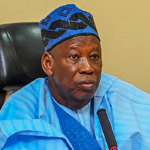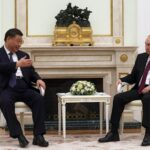The best time for the Federal Government to totally stop subsidy on petrol and completely deregulate the downstream sector is now when global crude oil prices are still trading low, economy and energy experts have said.
Brent crude, the international oil benchmark, closed at around $66.87 per barrel in 2017 rising to a high of $86.74 in October 2018, but it has fallen since then.
Although prices rebounded in January 2019 hitting $60 per barrel at the weekend on support from OPEC production cuts, the price is projected to remain below $80 in 2019.
Experts have therefore called on government to utilise this period of low oil price to do away with subsidy on petrol that continues to gulp billions of dollars of government fund.
This year, the Federal Government has earmarked N305 billion, equivalent to $1 billion, for under-recovery (subsidy on petrol) by the NNPC, an amount which is higher than what the government plans to spend on critical capital projects for education (N47.29bn), health (N50.15bn), water resources (N73.58bn) and agriculture (N80.29) put together in 2019.
The Group Managing Director of NNPC, Dr. Maikanti Baru, recently disclosed that under-recovery on petrol has dropped from an all-time high of N80/litre to about N25/litre, thus presenting the government with an opportunity to free up funds for under-recovery (or subsidy) for badly-needed infrastructure projects.
“Today, we are having much lower crude oil prices and under-recovery had also gone down significantly to the region of N20 and N25 per litre,” he said.
The Petroleum Products Pricing Regulatory Agency (PPPRA), the agency responsible for fixing fuel price, also said recently that with the recent plunge in the price of crude oil in the international market, it had observed a downward trend in the Expected Open Market Price of PMS, to be below the government approved pump price of N145/litre.
“It is expected that over-recovery could be witnessed and if this trend continues, this will enable other marketers commence importation of petrol,” the agency’s spokesman Apollo Kimchi said.
As a result of this recent development in the oil market, a cross section of economy and energy experts have called on the Federal Government to act now if it is serious about the removal of subsidy.
“The drop in crude oil price is presenting Nigeria with another great opportunity to do away with government subsidy (estimated at between N1 and N1.3 trillion in 2018. Subsidy incurred on PMS is at its lowest level in a year,” energy research analyst at Ecobank, Jubril Kareem, said in a tweet.
Principal consultant at DeltR Energy Ltd. Ronke Onadeko, said government cannot continue bearing subsidy burden because the beneficiaries of the subsidy are not being impacted.
“Instead of Nigerians benefitting, the whole of West Africa, smugglers and brisk business contractors are smiling to the bank,” she added.
“Unfortunately subsidy costs are based on many things we cannot control and are likely to spin even more out of control. Exchange rates, international crude prices, quantities we consume that includes those that get smuggled to all the neighbouring countries, operational inefficiencies from NNPC purchase style to logistics etc, whatever way the situation is bleak and will get worse,” Onadeko said.
Also commenting, the Director Institute for Oil, Gas, Energy, Environment and Sustainable Development (OGEES) Institute, Afe Babalola University, Prof. Damilola S. Olawuyi, agreed that there could be no better time to end subsidy on fuel than now.
“Plunging crude oil prices, and the corresponding cheaper pump prices of petrol, can alleviate the threat of public unrest and popular opposition, which has been one of the main obstacles to subsidy reform in Nigeria,” he said, adding that “the economic impact of subsidy removal is less severe for the common citizen under current low crude oil prices, as petrol cost will remain relatively low.”
“Furthermore, economic actors that have perennially benefitted from fuel subsidies generally benefit less when crude oil prices decrease. This could generally reduce the appetite for such groups to mobilise against a comprehensive and well communicated subsidy reform programme by the government.
“This means that the public and political opposition to subsidy reforms may be relatively less intense when oil prices are lower,” Olawuyi said.
He explained that a number of other developing countries, especially those in Asia, have acted promptly to seize this opportunity provided by the plunging oil price to abolish fuel subsidies.
“For example in Indonesia, previous attempts by the government to remove fuel subsidies were met with public resistance and protests. However, in 2014 during the global oil price drop, the government abolished its fuel subsidy thereby bringing down total expenditure on subsidy from 13.5 percent to 1 percent and saving over $20 billion in annual budget for spending on infrastructure projects.
“Similarly, in 2014, Malaysia abolished its subsidy on both petrol and diesel saving at least $6.3 billion in the government’s annual budget. India also announced a comprehensive overhaul of its subsidy programme in 2014. Angola is another country that announced changes to its subsidy programme in 2014. The reforms in these countries are now yielding benefits with more capital outlay on huge infrastructure projects,” he said.
Continuing, Olawuyi said missing such an opportunity could be costly in the long term.
Professor of petroleum economics and President of Nigerian Association for Energy Economics (NAEE), Wumi O. Iledare, while commending the government for putting subsidy in the budget for appropriation for the first time, advised the government to do away with subsidy now because it is a social service that is destructive to the economy.
He said, “Subsidising consumption based on import is an economic waste, more so when resources are scarce. Interestingly those being subsidised are the elite who have the ability and willingness to pay for a scarce commodity like petrol.
He added that subsidising an economic good such as petrol enhances social welfare loss, evident in the country’s debilitated utility infrastructures, schools, health facilities and so on.
“Yes, removing subsidies may create social unrest, but with public education people can adjust for posterity. We made a mistake when the price was set at N145, we should not have set price then. The opportunity was lost and we are only postponing the evil day,” Prof Iledare stated.




